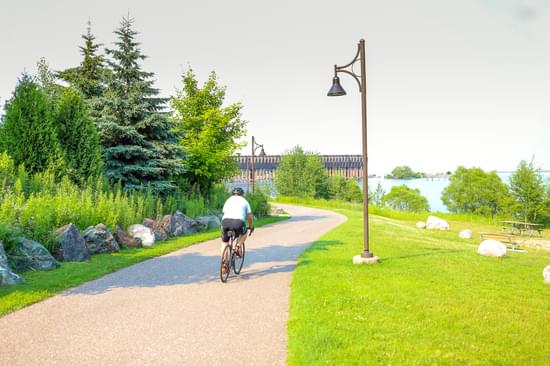




The Coronavirus Aid, Relief, and Economic Security (CARES) Act, signed into law by President Donald J. Trump on March 27, 2020, provides the Economic Development Administration (EDA) with $1.5 billion for economic development assistance programs to strengthen communities.
by Liz Thorstensen, Vice President of Trail Development, Rails to Trails Conservancy

The team at Rails to Trails Conservancy and American Trails is closely tracking relief and funding opportunities related to COVID-19 that may be appropriate for trail development.
On May 7, the Economic Development Administration (EDA) announced the availability of $1.5 billion in CARES Act funds in response to the pandemic. This funding will provide investments that support construction, non-construction, planning, technical assistance and revolving loan fund projects under EDA’s existing Public Works program. The funds are intended to aid regions across the country experiencing severe economic dislocations and hardship brought about by the pandemic.
The EDA’s funding announcement encourages “initiatives that present new ideas and creative approaches to advance economic prosperity in distressed communities.” While EDA programs are not a traditional source of trail funding, we believe trail and active transportation applications that make a strong economic impact and recovery case could very well be competitive in this program. EDA will accept applications for grants to support a wide variety of assistance, including:
We encourage you to explore this funding opportunity by:
While the submission timeline is on a rolling basis, our expectation is that these funds will be granted on a first-come, first-served basis. Similar to other programs implemented under the CARES Act, demand will likely be very high. We encourage you to explore this opportunity as soon as possible.
If you do decide to formally apply, please email RTC to let us know so that we can track the success rate of trail-related applications and share that information with the trails community.
*** LAST CALL! REMINDER! *** 2024 North American Trail Sector Survey Open!
posted Apr 24, 2024
Deadline: April 30. American Trails is partnering with Trans Canada Trail to launch the inaugural North American Trail Sector Survey.
Apply Now! $45 Million in ATIIP Grants Available
posted Mar 20, 2024
Applications are now open for the first ever funding round of the Active Transportation Infrastructure Investment Program (ATIIP).
Action Alert: Active Transportation Infrastructure Investment Program (ATIIP)
posted Mar 5, 2024
Our partners at Rails To Trails Conservancy are warning us that Congress has reached a tentative deal to fund the U.S. Department of Transportation (USDOT) for Fiscal Year 2024, and it does not include the Active Transportation Infrastructure Investment Program (ATIIP).
2024 Legacy Trail Program Awardees Announced
posted Feb 12, 2024
We are excited to announce the projects we selected for funding for the 2024 Legacy Trail Program grant cycle. In this second year of the program, we funded a total of $1.35 million to 27 organizations.
3,326 views • posted 05/13/2020